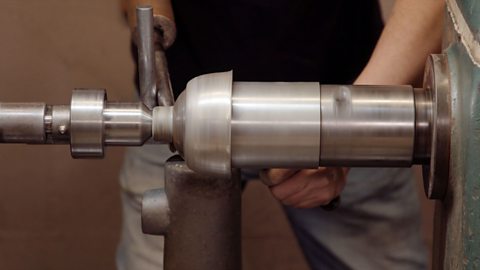If youтre finishing school or college soon and are keen to get into the world of work, you might consider applying for an apprenticeship.
What is an apprenticeship?
An apprenticeship is a type of job you can get from the age of 16 where you work full-time for a company but are also trained at the same time. You earn a salary and are treated like an employee, giving you all the independence and responsibility that youтd get if you went straight into a job, but at least 20% of your time will be spent in training, learning the hands-on skills youтll need to progress in your chosen career.
You can choose to do an apprenticeship anytime from the age of 16 т thereтs no upper age limit so it doesnтt have to be straight after your GCSEs. They can take anything from one to five years to complete, but at the end youтll be fully trained and qualified in your chosen role.
Apprenticeships are organised into different levels which are equivalent to traditional educational levels, like this:
- Intermediate (Level 2) = GCSE level
- Advanced (Level 3) = A-level
- Higher (Levels 4 т 7) = Foundation degree and above
- Degree (Levels 6 and 7) = Bachelors or masters degree
Entry requirements will differ depending on the industry, job role and level youтre interested in. If youтve just finished your GCSEs youтll probably want to look at Intermediate or Advanced apprenticeships.
To give you a taste of what doing an apprenticeship could be like for you, weтve caught up with three apprentices all working in very different industries. Read on to hear their stories and find out why doing an apprenticeship was the right move for them.


Gemma
It makes sense because youтre experiencing what you learn on a daily basis.
Gemma has just completed her Level 3 apprenticeship in Business Administration with KPMG in London. She went into her apprenticeship at 16, straight after her GCSEs.
Gemmaтs course lasted for 15 months. Each week she worked four days in the office as a team secretary, and the fifth day was set aside for studying. Her course was made up of online lectures and materials which tied into the tasks and projects that she was working on in the office т so she got the opportunity to apply what she was learning straight away.
This suited Gemma, as she explains: тAt GCSE, I found it difficult to study consistently for two years. An apprenticeship includes practical work at the same time so it makes sense because youтre experiencing what you learn on a daily basis. It was refreshing.т
Unlike most of her friends, who went on to do A-levels, Gemma wasnтt sure what she wanted to do after her GCSEs but says that, with her apprenticeship, she has achieved тa qualification that is transferable into any company, department or careerт that she might want to go into in the future.
Her favourite thing about doing an apprenticeship is тthe fact that you get to meet so many new people you wouldnтt usually get the opportunity to meet т people whoтve worked all over the world.т It also "teaches you to push your limits," she says. "Your team knows you donтt know anything so they put you in situations where youтre going to grow and get experience."
In fact, Gemma enjoyed her apprenticeship so much that she's now doing a degree apprenticeship at KPMG. "Think outside of the box," Gemma advises, "You donтtт always have to follow the strict sequence of GCSEs т A-levels т uni. Thereтs such a range of apprenticeships out there and itтs not always what you think, so do your research and youтll find something tailored to you."



Varis
Youтre learning. And you get paid. And youтre enjoying it!
Varis is an apprentice silver spinner with The Goldsmiths' Centre in London. He makes bespoke silver pieces, such as trophies.
ГеВЙАљОБВѕтs Level 3 apprenticeship is five years long and is structured quite differently from Gemmaтs. Varis spent the first year in college completing a foundation course. He then chose a specialism and will work full time for the next four years becoming an expert in that area. During this time, he revisits college at regular intervals to learn more about other skills, such as enamelling or jewellery making, which is really useful, he says, because тif you know how theyтre done and youтve tried them, you have a better understanding of what your colleagues can do.т
Varis says he never enjoyed school: тIt was never my thing т I just donтt like sitting down. I could never learn from reading whereas if I do it, I will learn it and retain it.т
To qualify for his apprenticeship, Varis didnтt need any specific qualifications. He attended an assessment centre where тit was more about proving how good you are at working with your handsт. He had achieved two A*тs in Art and Textiles, so practical skills were his strength: тI enjoy making things and always have,т he says.
тIf you enjoy working and learning on the job, youтre not going to get anything better than an apprenticeship. In college you learn more theory, but some things you can only learn from experience. Youтre learning. And you get paid. And youтre enjoying it!"



Jade
As far as future job prospects go, I really am one step ahead of other people.
path was a little different. She did her GCSEs and A-Levels, but didnтt know what she wanted to do afterwards, so she chose to work and travel for a few years. Jade knew that she was passionate about conservation though, so looked for a course that would help her to gain work in the environmental sector, and ended up applying for an apprenticeship in conservation.
тAn apprenticeship was the right choice for me,т explains Jade, тbecause Iтm a very practical person. I learn best when I can be actively doing something and figuring it out myself, so learning on the job was ideal.т
ДГВЙЛхБ№тs apprenticeship is very hands-on. In the first seven months of her two-year apprenticeship, she was in college one day per fortnight. She now works five days a week, learning on the job and completing coursework to document her experiences and knowledge. At the end of her apprenticeship, Jade will have a Level 2 qualification in environmental conservation, which is the equivalent to a GCSE.
тI already have A-levels,т says Jade, тso this is a тstep backт for me, but the experience and knowledge Iтm gaining during work is instrumental for me and my future. As far as future job prospects go, I really am one step ahead of other people. I have the experience of working in the field which most people have to try to get after their qualification.т


The challenges
Be under no illusion: working and training at the same time will be challenging, but rewarding.
For Gemma, the most challenging part of her apprenticeship was learning time-management."Youтre having to juggle a full-time, demanding job role and study at the same time," she says, "but if you put your mind to it, anything is possible."
Gemma also found communication with her colleagues tricky at the start: "I thought they were super-professional and didnтt have time to speak or explain things to me," but she soon realised how supportive her team were and grew in confidence.
For Varis, itтs the written components of the apprenticeship that he doesnтt like. тIтm not very good at the whole paperwork side,т he says, тWe have to submit a quarterly review and Iтve never been good at just sitting down and writing things.т
For Jade, the most challenging part has been closing the knowledge gap. She explains, тItтs difficult sometimes to ask a question about something you donтt understand when youтre surrounded by experts in the field, but Iтve learnt that they really do want to help you learn, and everyone has to start from somewhere!т

If youтre interested in doing an apprenticeship, there are lots of different opportunities to explore. You can search for them on the or .

Self-care and self confidence
If you're feeling a bit down, give yourself some TLC!

What will I need to get into uni? Apprenticeships and college options
Advice on different routes into Higher Education.

Our Mind Set experts talk through the different options available.
